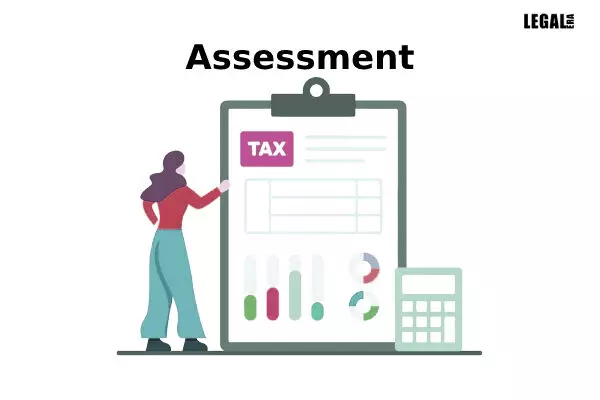- Home
- News
- Articles+
- Aerospace
- Agriculture
- Alternate Dispute Resolution
- Banking and Finance
- Bankruptcy
- Book Review
- Bribery & Corruption
- Commercial Litigation
- Competition Law
- Conference Reports
- Consumer Products
- Contract
- Corporate Governance
- Corporate Law
- Covid-19
- Cryptocurrency
- Cybersecurity
- Data Protection
- Defence
- Digital Economy
- E-commerce
- Employment Law
- Energy and Natural Resources
- Entertainment and Sports Law
- Environmental Law
- FDI
- Food and Beverage
- Health Care
- IBC Diaries
- Insurance Law
- Intellectual Property
- International Law
- Know the Law
- Labour Laws
- Litigation
- Litigation Funding
- Manufacturing
- Mergers & Acquisitions
- NFTs
- Privacy
- Private Equity
- Project Finance
- Real Estate
- Risk and Compliance
- Technology Media and Telecom
- Tributes
- Zoom In
- Take On Board
- In Focus
- Law & Policy and Regulation
- IP & Tech Era
- Viewpoint
- Arbitration & Mediation
- Tax
- Student Corner
- AI
- ESG
- Gaming
- Inclusion & Diversity
- Law Firms
- In-House
- Rankings
- E-Magazine
- Legal Era TV
- Events
- News
- Articles
- Aerospace
- Agriculture
- Alternate Dispute Resolution
- Banking and Finance
- Bankruptcy
- Book Review
- Bribery & Corruption
- Commercial Litigation
- Competition Law
- Conference Reports
- Consumer Products
- Contract
- Corporate Governance
- Corporate Law
- Covid-19
- Cryptocurrency
- Cybersecurity
- Data Protection
- Defence
- Digital Economy
- E-commerce
- Employment Law
- Energy and Natural Resources
- Entertainment and Sports Law
- Environmental Law
- FDI
- Food and Beverage
- Health Care
- IBC Diaries
- Insurance Law
- Intellectual Property
- International Law
- Know the Law
- Labour Laws
- Litigation
- Litigation Funding
- Manufacturing
- Mergers & Acquisitions
- NFTs
- Privacy
- Private Equity
- Project Finance
- Real Estate
- Risk and Compliance
- Technology Media and Telecom
- Tributes
- Zoom In
- Take On Board
- In Focus
- Law & Policy and Regulation
- IP & Tech Era
- Viewpoint
- Arbitration & Mediation
- Tax
- Student Corner
- AI
- ESG
- Gaming
- Inclusion & Diversity
- Law Firms
- In-House
- Rankings
- E-Magazine
- Legal Era TV
- Events
ITAT rules revisional jurisdiction erroneous once AO completes assessment

ITAT rules revisional jurisdiction erroneous once AO completes assessment
Quashing the order of the Principal Commissioner of Income Tax, it favors the assessee
The Chennai bench of the Income Tax Appellate Tribunal (ITAT) has held that revisional jurisdiction cannot be invoked for reassessment once it is completed by the assessing officer (AO).
The tribunal made the observation when an assessee appealed against the June 2022 order of the Principal Commissioner of Income Tax, Coimbatore, pertaining to the Assessment Year 2011-2012.
The question before ITAT was whether the PCIT could invoke the revisional powers under the Income Tax Act, 1961 to redo the assessment on an alternate view.
The assessee maintained that PCIT erred in invoking the jurisdiction and setting aside the assessment order passed by the December 2018 order of the AO. He said the PCIT failed to appreciate that the AO considered the issue of trade discount received from SKM Animal Feeds and Foods (India) Pvt. Ltd after considering the relevant submissions of the assessee estimating the gross profit on trade discount. Once the AO considered the issue, there was no scope for the PCIT to revise the assessment order.
On the other hand, the Commissioner of Income Tax supported PCIT's order. He stated that though the assessee received the trade discount of Rs.23,16,261, the AO estimated the gross profit of 5.4 percent and made an addition of Rs.1.25 lakhs. It rendered the assessment order as erroneous and prejudicial to the interest of the revenue department.
However, the Coram of Mahavir Singh (vice-president) and G. Manjunatha (accountant member) observed, "Once the AO has taken the decision, there is no scope for PCIT to substitute his view and direct the AO to make an assessment in a particular manner. The issue was thoroughly dealt with and after being satisfied with the assessee's explanation, the AO completed the assessment."
The tribunal further stated, "The PCIT has completely erred in setting aside the assessment order passed by the AO under the IT Act. Therefore, we quash the order."




